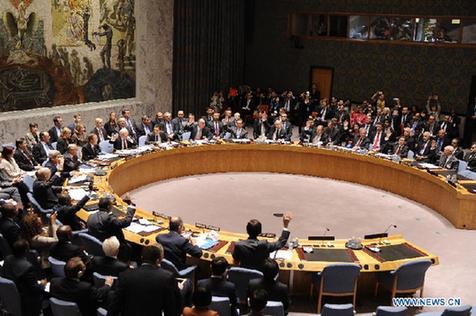Open letter to all states and non-state actors Involved in the Syrian conflict
 0 Comment(s)
0 Comment(s) Print
Print E-mail China.org.cn, September 29, 2013
E-mail China.org.cn, September 29, 2013
Following the agreement brokered between the governments of Russia and the United States of America, the international medical humanitarian organisation Médecins Sans Frontières (MSF) calls on these two States to place at the top of their diplomatic agendas the substantial scale up of humanitarian aid to millions of war-affected Syrians.
|
|
|
The United Nations Security Council members vote unanimously to adopt a resolution aimed at ridding war-torn Syria of chemical weapons, at the UN headquarters in New York, on Sept. 27, 2013. [Xinhua/Zhang Jun] |
Given the multiplicity of States and non-State actors involved in the Syrian conflict, it is imperative that the Russian and U.S. governments work with their respective political allies to develop a strategy for facilitating a massive infusion of humanitarian assistance wherever it is needed in Syria.
To be clear, the call for breaking the deadlock for humanitarian aid should not be interpreted as a call for militarized assistance. As recognized under international humanitarian law, aid and relief workers must be allowed to move freely to reach those most in need. The Russian and U.S. governments should therefore apply the same level of diplomatic energy to increase humanitarian aid to the millions of victims of violence in Syria as has been brought to secure an agreement about the control of chemical weapons.
Nearly two and half years into the Syrian conflict, the war has killed more than 100,000 people. One quarter of the country’s population has been forced to flee their homes. A further 2.1 million people have fled the country.
The medical system--like the rest of Syrian society--has been under siege during the conflict and is no longer capable of responding to the acute and chronic medical needs of the Syrian population. Hospitals and medical staff have been targeted throughout the war. Of the 91 public hospitals across the country, 55 (60 percent) have been damaged or have been completely destroyed.






